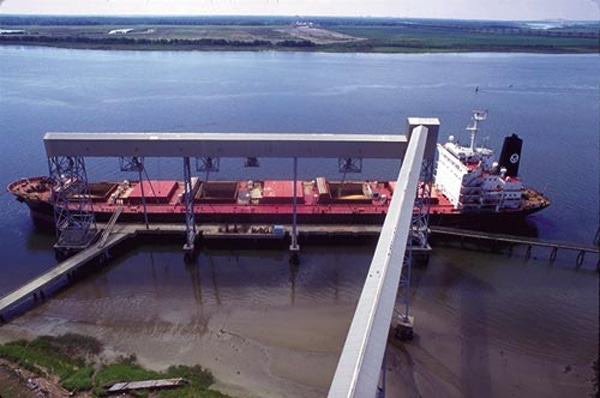
USDA Undersecretary Michael Scuse urges quick action on TPP
“The sooner we can get Congress to vote on it and approve it, the better off our producers are going to be. Every day that it is delayed is another day that our producers in this country are put at a disadvantage because of free trade agreements these countries have with others.”
January 15, 2016

The clock is ticking on the Trans-Pacific Partnership or TPP, and U.S. farmers are the ones who could lose out because of any delays that prevent Congress from voting on and ratifying the document.
The Trans-Pacific Partnership a free trade agreement between the U.S. and 11 Pacific Rim countries was reached last Oct. 5. The formal text has been released and is now being reviewed by Congress, according to Michael Scuse, undersecretary for farm and foreign agricultural services at USDA.
“All the text has been released; it’s being reviewed and studies are being done on the overall impact of TPP,” said Scuse, who spoke at the National Conservation Systems Cotton and Rice Conference in Memphis, Tenn. “Hopefully, we’ll be able to get Congress to vote on TPP this spring.
“The sooner we can Congress to vote on it and approve it, the better off our producers are going to be. Every day that it is delayed is another day that our producers in this country are put at a disadvantage because of free trade agreements these countries have with others.”
Scuse, who is also a farmer in Delaware, was the luncheon speaker for the conference, which alternates between the northern and southern halves of the Mid-South region annually. The event, which also includes the Southern Corn & Soybean Conference, the Southern Precision Ag Conference and the Delta States Irrigation Conference, is now in its 19th year.
Multiple benefits
He said several sectors of the U.S. agricultural economy could benefit from TPP, which is designed to promote economic growth, support the creation and retention of jobs and enhance innovation, productivity and competitiveness among the partners along with other benefits.
“I think we’re looking at increases in many of our agricultural products,” said Scuse. “Definitely the meat sector I think we’ll see increases there. I think we’ll see increases in the dairy sector, as well, rice, cotton because of the high tariffs these countries have on these particular products.
“So I think we’re going to see a great many of our agricultural products see increases in trade once this agreement is finally approved by all the countries.”
Besides the U.S., the countries include Australia, Brunei, Canada, Chile, Japan, Malaysia, Mexico, New Zealand, Peru, Singapore and Vietnam. Together, they represent 40 percent of the world’s gross domestic product or GDP.
Besides TPP, the U.S. government is also working on an agreement called the Transatlantic Trade and Investment Partnership with the member countries of the European Union. Scuse said those negotiations are at an early stage.
Agreement in 'infancy'
“It’s going to take a while to get all of the issues ironed out, especially in the agricultural sector,” he said. “It’s still in its infancy. A lot of work is being done on it between the United States and the European Union.
“It’s taken us many years to get to the point where we are now on TPP for ratification by Congress,” he said. “These trade agreements are not something that happens overnight. There’s a lot of work that goes into them by a lot of government agencies whether it be agriculture, the U.S. Trade Representative’s office, Commerce, the president’s office. It takes years to bring one to conclusion.”
The TPP is opposed by some labor and advocacy groups who claim it will result in more U.S. jobs going offshore. Most farm organizations are supporting it, including such groups as the American Soybean Association.
Following the state of the union message Tuesday night (Jan. 12), soybean organization said it welcomed the commitment President Obama made to trade and its promise for the American economy.
“Specifically, ASA looks forward to continuing its cooperation with the administration to advance the Trans-Pacific Partnership as well as further normalization of trade relations with Cuba, said its president, Richard Wilkins, a farmer from Greenwood, Del.
Commitment by president appreciated
“The commitment of this administration to trade is something that we have appreciated at every turn, and the President's final State of the Union address this evening shows that course will continue throughout the year.
"We understand that the Trans-Pacific Partnership is going to be a heavy lift this year, but we are excited to continue our press to see it passed by our Congress and ratified. The promise of the TPP for soybean farmers is too great to accept anything less, and we are very encouraged to hear the president continue his focus on the TPP in the year to come.
Wilkins said soy will benefit from the TPP in three ways:
Through in increase in the direct export of soybeans and soy products to the 11 TPP nations, which already account for $5.4 billion in annual soy exports.
The TPP will significantly expand meat exports to the region, which drives demand for soy meal as livestock feed here in the U.S.
The TPP will foster long-term demand through the further development of the emerging economies within the region.
“Another positive signal from the administration is its continued commitment to expanding our relationship with Cuba. ASA supports the development of further trade ties in Cuba because of the proximity and promise of that economy, and we appreciate and welcome the president's persistence on the issue.”
For more on the National Conservation Systems Cotton and Rice Conference, visit http://www.nctd.net/.
About the Author(s)
You May Also Like





